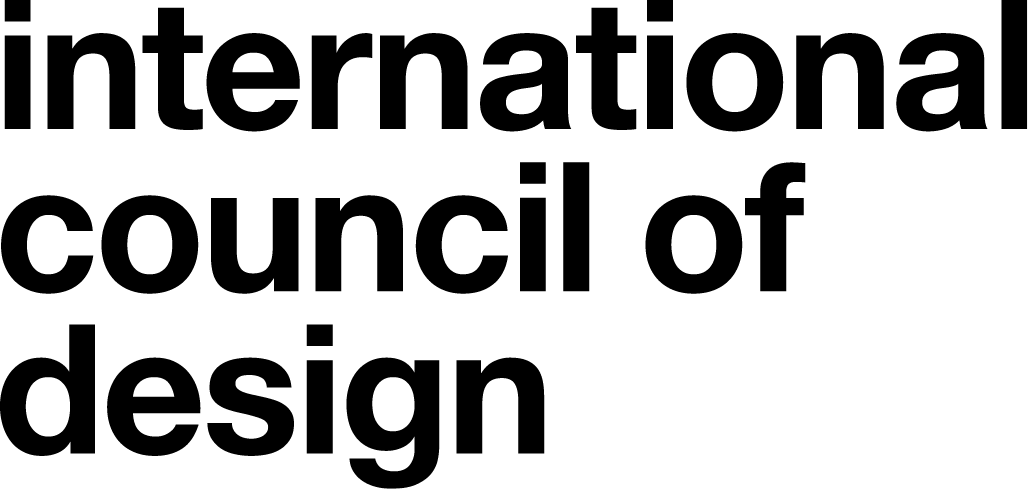
 | view in browser | |
|
newsletter bi-monthly bulletin of the International Council of Design, ico-D |
July 2020 | |||||||||
01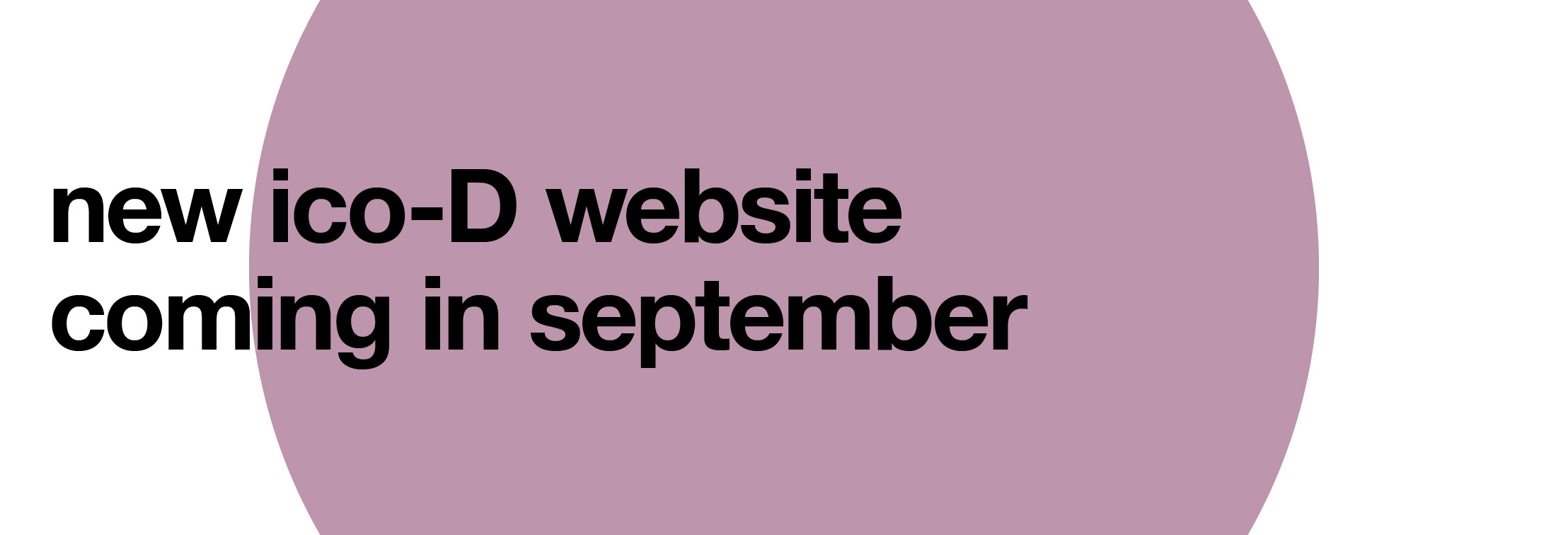
ico-D newsThe International Council of Design will soon unveil a new website intended to reset the understanding of what design is and who professional designers are—redefining their collective roles and responsibilities within the current global landscape. Committed to the standing of the design profession, the updated website will include easier-to-navigate, intuitive design functionalities created by Lithuanian design studio Imagine and new content meant to stimulate critical thinking. We are acutely aware of the implications involved in the complex manufacturer/designer/user relationship and the resulting complicity of designers in negative impacts of overconsumption. Sensitive to this tension between designers and corporate structures, today we see a great need to position design differently, to develop a new culture of consumption, and a new culture of design ethics.
|
02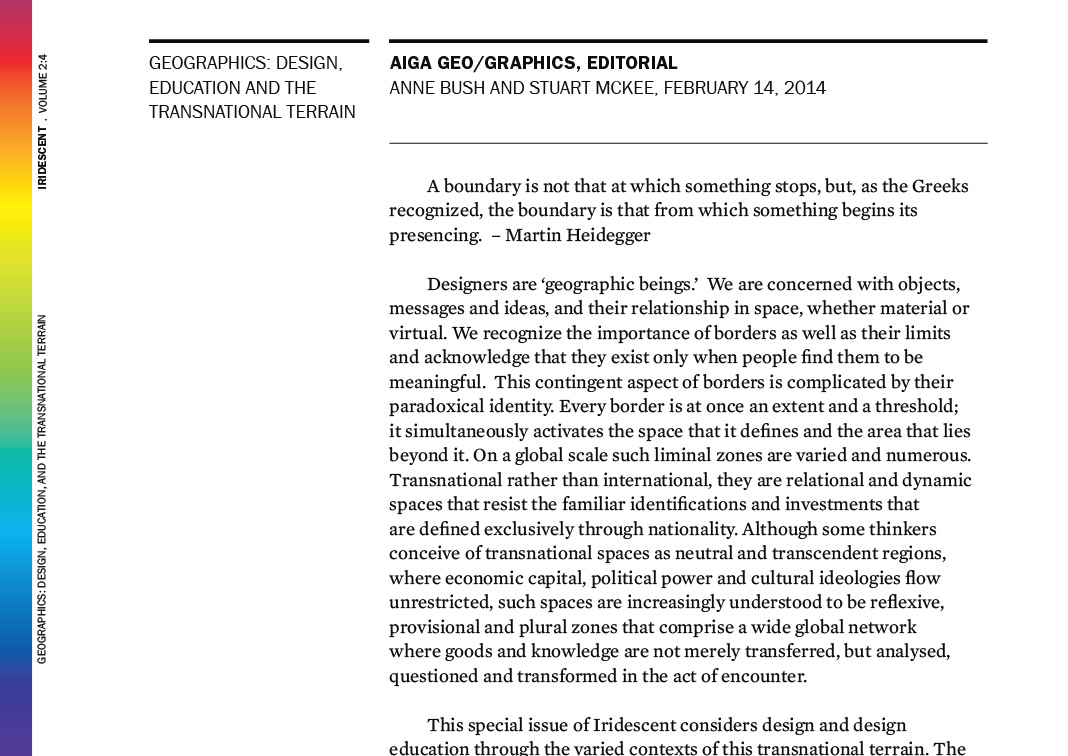
IridescentIn this final issue entitled Geographics: Design, Education and the Transnational Terrain (2014) Ariyuki Kondo explores the impact of transnationality and the historiography of design; Raul Cabra’s article is about creating a transnational collaborative space fuelled by the notion of play; Sharon Helmer Poggenpohl discusses cross-cultural communication and the implications of teaching Chinese design students in their own country; and Nicholas Zimmerman asks: “How do symbols of international culture define, disrupt, or invert the logic of how kitsch becomes stylized?” Read the issue |
|||||||||
03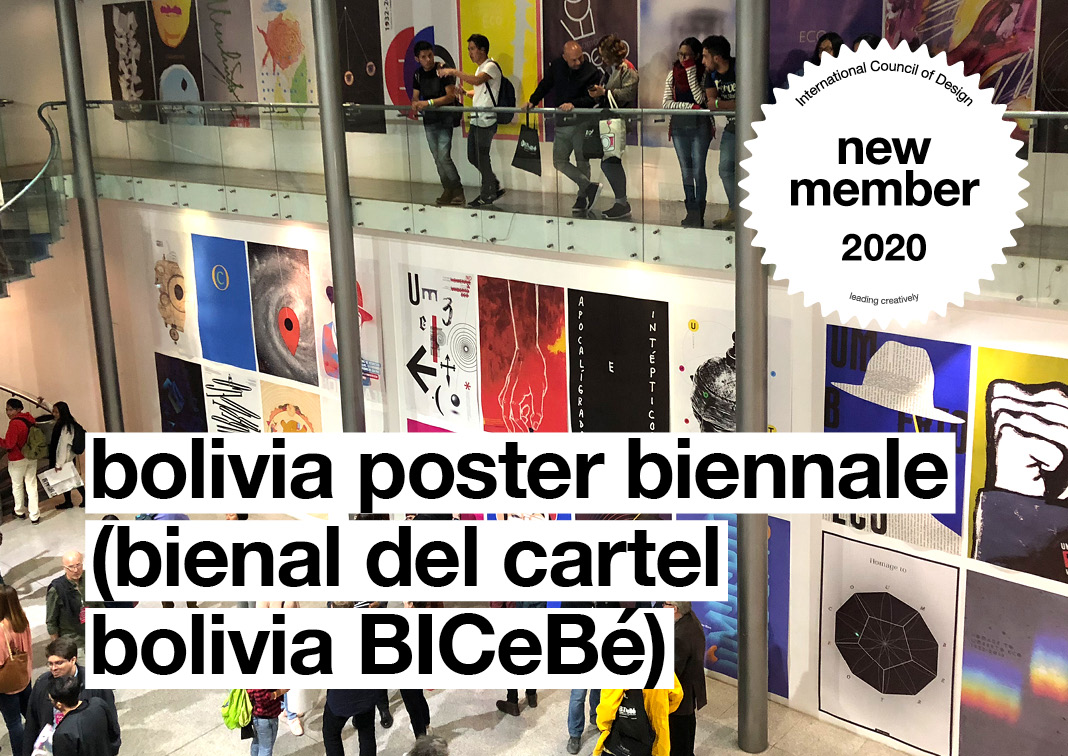
New Member"The concept of the 'Poster' was the starting point, 'the perfect communicable connection,'" writes the organisers of ico-D's newest Member Bolivia Poster Biennial (Bienal del Cartel Bolivia BICeBé). "The Biennial recognises that it is crucial to reaffirm the role of design in the progress of societies, understanding the professional as a public servant and integrating equality into the many ways of seeing, all in a single living space. This added value has been the driver for the Biennial, to be an event for young people, where they can find and reaffirm their true call in creating connections with the world that surrounds them." Meet our new Member |
04
Interview“Design can provide not only tactical creativity but also focus and strategy. Even to those who believe in the Anthropocene and the singularity, and thus expect the human species to become extinct at some point in the (near? far?) future, design can provide the means to plan a more elegant ending. It can ensure that the next dominant species will remember us with a modicum of respect, as dignified and caring, if not intelligent.”
|
05
Best PracticesDesign Awards are a very prominent and visible part of the design industry eco-system. They contribute to the promotion of the design sector and to the public awareness of the capacity of design to impact different sectors of society. But as Design Awards proliferate so do unethical practices. As more and more Awards struggle to find their place, they sometimes lose sight of the greater goal and become sources of promotion of mediocre design or worse. We challenge Design Awards to step up and invest in recognising professionalism rather than focusing on ‘desirable’ images of design.
|
||||||||
06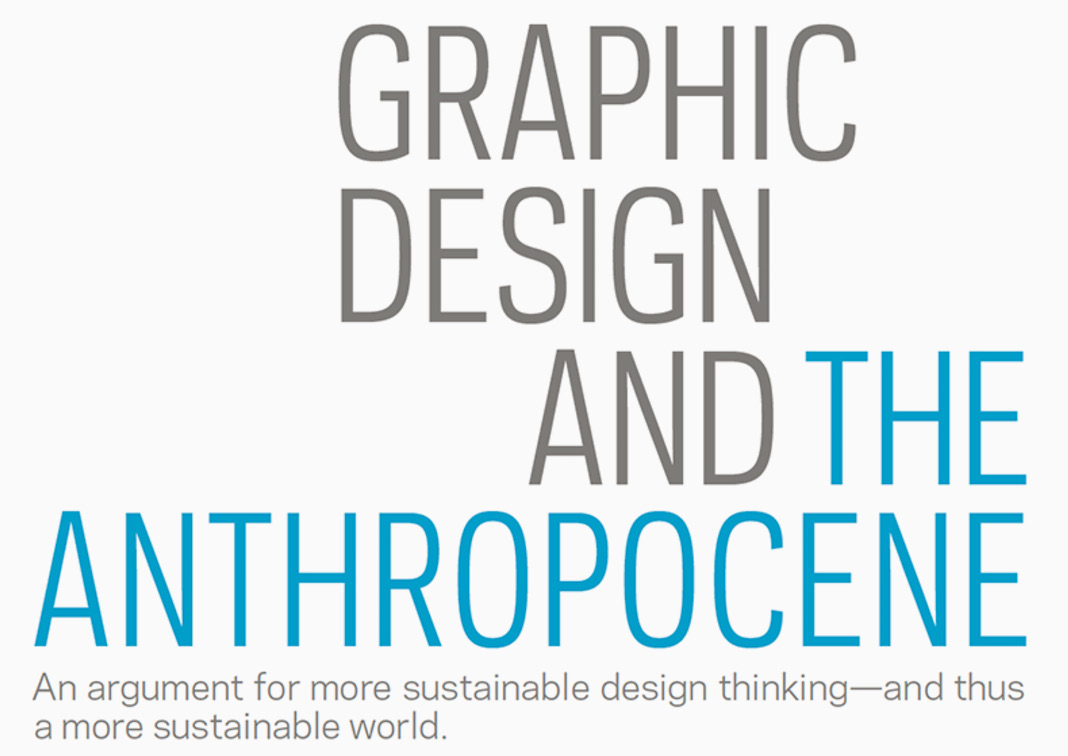
OpinionJust as the pandemic signals a palpable shift from business-as-usual to a more careful reflection and questionning of the 'usual' by many designers—we think this article (specifically graphic design) can be applied across the design diciplines.
|
07
Message to designersSustainability is an important issue that designers will be called on to contribute to. As evidenced by the current pandemic, the increasing impact of humans on the planet's ecosystems will progressively make 'business as usual' impossible. As designers, we have first to admit that we have long been part of the problem. We have a non-negligible role in the consumption habits that drive resource depletion, manufacturing pollution and the mountains of waste being created every day. This is our reflection on how design can help.
|
08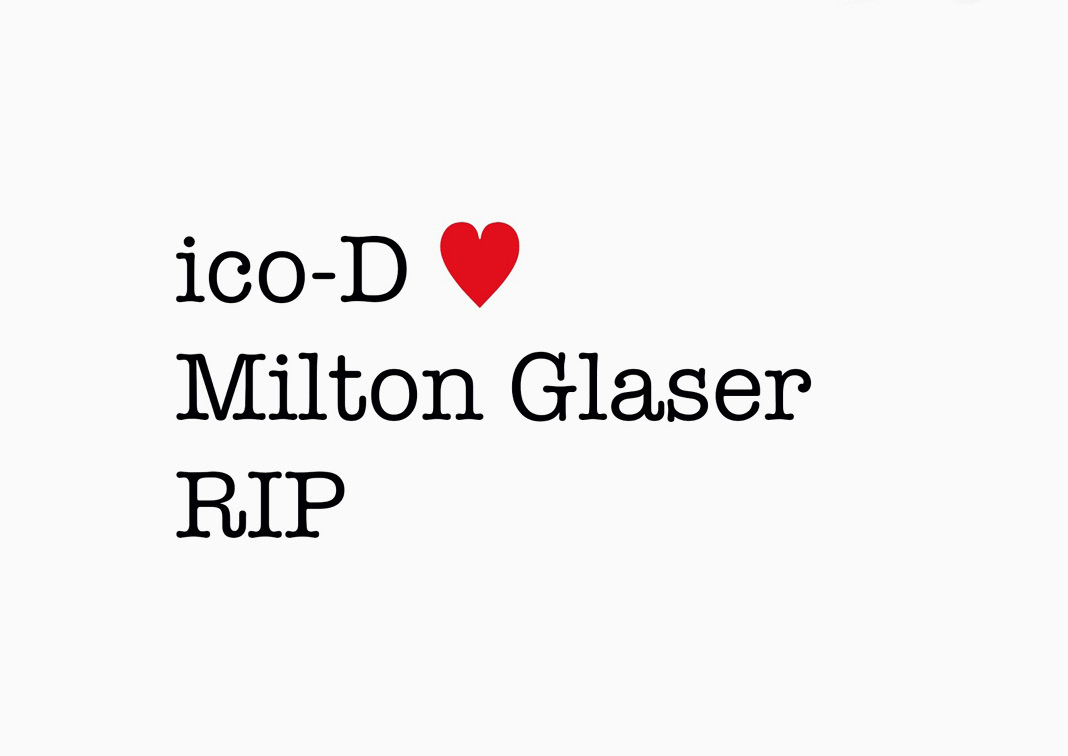
In memoriamOn 26 June 2020 we lost one of the greats of graphic design, Milton Glaser. In homage to the importance of his contributions to the professionalisation of graphic design and to the value of his body of work, we have collected some of the tributes that have been published.
|
||||||||
09
SustainabilityAn analysis of the link betweem sustainability and diversity in the fashion industry: "Countries where the majority of clothing is manufactured—as well as where much of it ends up at the end of its life—are among the world’s most vulnerable to climate change, and many grapple with contaminated or insufficient water supplies and other environmental ills." The article reveals the fashion industry's struggle between the appearance of corporate responsibility and addressing the complex systemic issues in the supply chain that are at odds with this.
|
10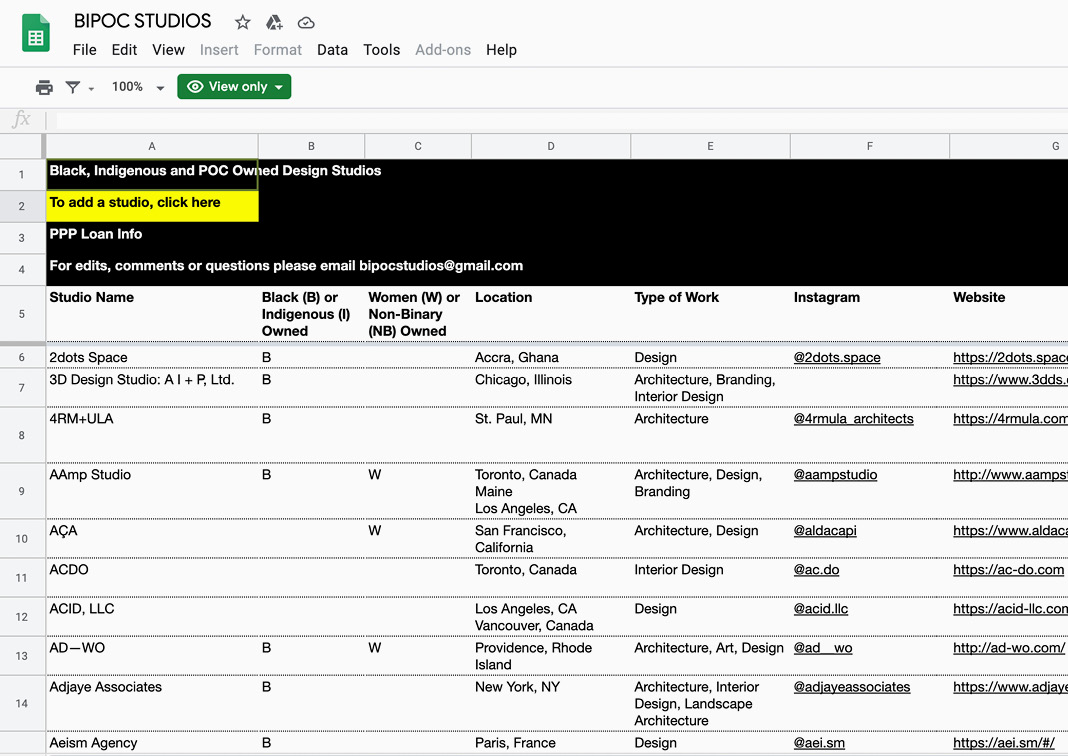
ResourcesGoogle Docs have become a medium of choice for the fast-paced gathering and disseminating of information by activists. The BIPOC spreadsheet, an initiative by a collective of architects, designers and artists including Virgil Abloh, Dong-Ping Wong, Tei Carpenter, Dominic Leong, Preeti Sriritana and others, is a grass-roots initiative encouraging studios, hundreds of them, to announce the diversity of their leadership teams and studios as well as signal if they are hiring. BIPOC is an acronym for Black, Indigenous and People of Colour.
|
11
Book recommendationCanadian designer Kelly Small offers an exploration of what it is to be a 'conscious' designer in these complex times. Subtitled 'practical ethics for purposeful work' Small delves into some of the intricacies of balancing professional ethics with the designer's role in the culture of consumption. Tackling difficult subjects like decolonisation head on, these ethical recommendations attempt to give designers a path for bringing their practice in line with their personal convictions.
|
||||||||
|
||||||||||
|
||||||||||
|
The International Council of Design |
ICoD Secretariat: Phone: +1 514 875 7545 Email: info@theicod.org theicod.org |
Follow ICoD: facebook | twitter | instagram To update your preferences, please click here. |